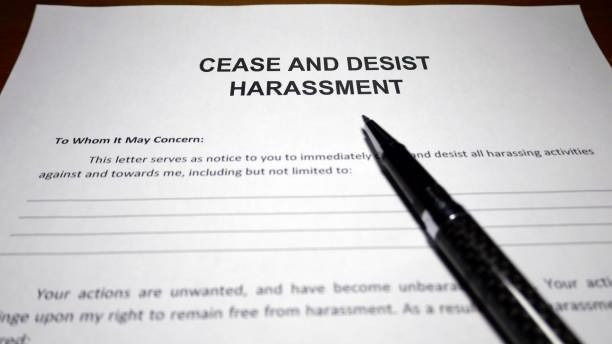Sometimes, a simple letter can be more powerful than you think. When someone is harassing you, using your work without permission, or a debt collector is crossing the line, a cease-and-desist letter can be a strong first step. Instead of jumping straight into lawsuits and courtrooms, this letter offers a chance to resolve issues quickly and calmly.
For example, if you’re in the middle of debt settlement and a debt collector won’t stop calling, a cease-and-desist letter can help enforce your rights and give you some breathing room. Writing one doesn’t have to be intimidating, and it can help you feel more in control of a frustrating situation.
What Is a Cease-and-Desist Letter?
A cease-and-desist letter is a formal request asking someone to stop doing something you believe is harmful, illegal, or violates your rights. While it isn’t a court order, it shows that you’re serious and willing to take further legal action if necessary.
This type of letter can be used in many situations, including:
- Harassment or unwanted contact
- Intellectual property infringement (like someone using your photos or writing without permission)
- Persistent debt collection calls or letters beyond what’s legally allowed
When to Use a Cease-and-Desist Letter
Before you sit down to write one, it’s important to make sure this is the right step. A cease-and-desist letter works best when:
- You’ve tried informal requests to stop the behavior, but nothing changed
- You want to avoid or delay going to court
- You have documentation to support your claim
If you’re dealing with aggressive collectors during debt settlement, a cease-and-desist letter can signal that you know your rights and expect them to respect legal boundaries.
What to Include in Your Letter
A strong cease-and-desist letter should be clear, respectful, and direct. Here’s what to include:
Your information
Start with your full name, address, phone number, and email. This makes it clear who is sending the letter.
Their information
List the recipient’s name, business name (if relevant), and contact details.
A clear description of the behavior
Explain exactly what the person or business is doing that you want them to stop. Be specific and include dates, examples, or supporting details.
A direct request to stop
Use straightforward language like “I am requesting that you immediately cease and desist from [specific behavior].”
Legal basis (if applicable)
If you know the specific laws or rights being violated, mention them. For example, under the Fair Debt Collection Practices Act (FDCPA), you can tell debt collectors to stop contacting you except for certain legal notices.
Potential consequences
State that if they don’t stop, you’re prepared to take further legal action. You don’t need to threaten aggressively — just calmly state your intention to protect your rights.
A deadline
Include a reasonable time frame for them to stop the behavior or respond, like 10 to 14 days.
Your signature
Sign and date the letter to make it official.
Tone Matters
When writing, keep a professional and calm tone. Avoid using emotional language or insults, even if you’re frustrated. A respectful letter is more likely to be taken seriously and could help you if the matter does end up in court later.
Keep Copies of Everything
Always keep a copy of the letter for your records. Send the letter via certified mail with a return receipt requested, so you have proof that it was delivered and received.
If you’re handling issues related to debt settlement, save any responses you get, along with your original letter, in case you need to show them to a lawyer or include them in future disputes.
When to Involve a Lawyer
Sometimes, writing your own letter is enough to solve the problem. But if the situation continues or feels complicated, it might be wise to consult a lawyer. A lawyer can help you draft a stronger letter and give you advice on your next steps if the behavior doesn’t stop.
For example, if a debt collector keeps violating your rights during debt settlement, a lawyer can help you take further action, such as filing a complaint or suing for damages.
Final Thoughts
A cease-and-desist letter is a practical tool that can help you take control of difficult situations without immediately resorting to legal battles. It shows that you’re aware of your rights and willing to defend them.
Whether you’re protecting your creative work, dealing with harassment, or stopping aggressive debt collection, knowing how to write an effective cease-and-desist letter empowers you to stand up for yourself.
Take your time to craft a clear, respectful, and firm message. And remember — while a letter can be a powerful first step, be ready to escalate if necessary to fully protect your rights.

